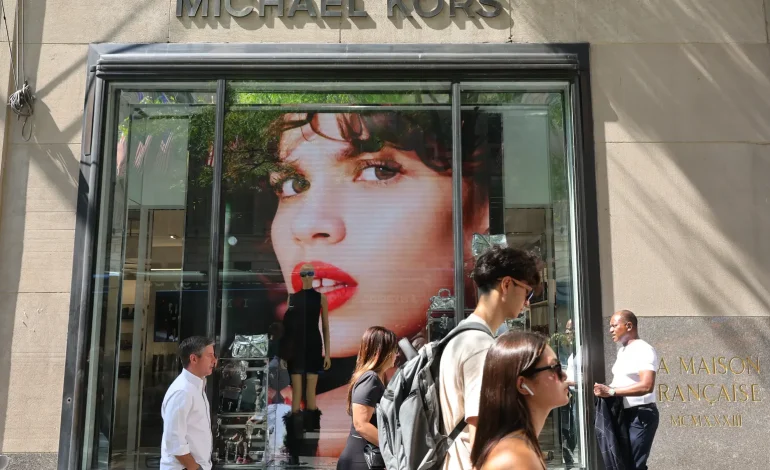Capri Holdings, the parent company of Michael Kors and Jimmy Choo, saw its stock plummet over 50% in pre-market trading on Friday after a federal judge blocked its proposed $8.5 billion merger with Tapestry, owner of Coach and Kate Spade.
US District Judge Jennifer Rochon ruled on Thursday against the merger, siding with the Federal Trade Commission (FTC) in its concerns that the consolidation would stifle competition in the US market for “accessible-luxury” handbags, potentially driving up prices for consumers.
The merger would have united some of the most recognized American luxury brands—Coach, Kate Spade, Versace, Jimmy Choo, and Michael Kors—under one umbrella. According to the FTC, however, the deal would have significantly reduced competition between the top US handbag makers, effectively lessening consumer choice. Capri and Tapestry had positioned the merger as a strategic move to compete more directly with dominant European luxury conglomerates such as LVMH, owner of Louis Vuitton and Dior, and Kering, the parent company of Gucci and Balenciaga.
Tapestry’s stock rose by nearly 13% following the decision. In a statement, Tapestry called the ruling “disappointing,” saying it believes the merger would be both pro-competitive and pro-consumer. Capri, on the other hand, is expected to seek alternative paths forward, possibly even considering another suitor, as the company addresses ongoing challenges with its Michael Kors brand.
The case marks another significant antitrust victory for the FTC under Chair Lina Khan, whose administration has aggressively challenged high-profile mergers across industries. The FTC recently moved to block a proposed $24.6 billion merger between grocery giants Kroger and Albertsons, citing concerns over price increases, and it has launched similar actions in the healthcare and retail sectors.
The court battle between Capri and Tapestry is set to continue in the FTC’s administrative court. Tapestry has signaled its intention to appeal, underscoring its commitment to the deal as a means of strengthening its competitive standing in the global luxury market.
New York Post, Axios, and the Washington Post contributed to this report.









